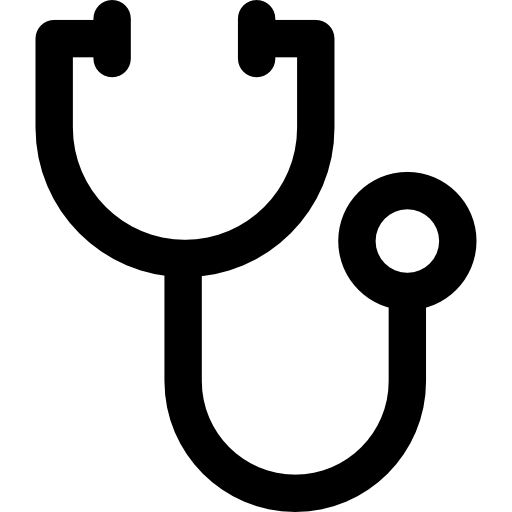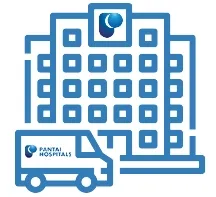Nasopharyngeal cancer (otherwise known as nose cancer) is an uncommon form of cancer that develops in the head and neck area.
This cancer typically starts in the nasopharynx (upper region of the throat that is connected to the nasal cavity, just above the roof of the mouth). When we breathe, air flows through the nose into the nasopharynx, throat, and finally into the lungs.
Nasopharyngeal cancer or NPC is much more prevalent in Southeast Asia compared to the other parts of the world, with up to 50 cases per 100,000 people. In contrast, the incidence for the rest of the world is fewer than 1 case per 100,000 people.
What are the types of nasopharyngeal cancer?
Nasopharyngeal cancer can be classified into three main types:
- Keratinising squamous cell carcinoma (type 1)
- Non-keratinising squamous cell carcinoma (type 2)
- Undifferentiated carcinomas (type 3)
What are the risk factors of developing nasopharyngeal cancer?
Although the exact cause of nasopharyngeal cancer (NPC) is unknown, some risk factors contribute to a higher risk of the disease:
- Alcohol and tobacco consumption: Heavy alcohol or tobacco use is associated with an increased risk of NPC. The use of tobacco, including cigarettes, cigars, pipes. Chewing tobacco is the single most significant risk for head and neck cancer. Secondary smoking may also increase a person's risk of developing head and neck cancer.
- Gender: The risk of men developing NPC is two times more than women.
- Age: Although NPC can develop in individuals of any age, the risk increases as one ages, especially after the age of 50.
- Certain dietary habits: Diets high in salts, cured fish and meat have also been linked to NPC.
- Epstein-Barr virus (EBV) infection: Some nasopharyngeal cancers have been linked to an EBV infection, however, not everyone who has had EBV infection will develop NPC.
- Family history: Having a family member who has NPC may also increase your risk of developing the same disease.
What are the signs and symptoms of nasopharyngeal cancer?
The early symptoms of nasopharyngeal cancer are similar to other milder medical conditions, which contributes to the difficulty to diagnose the disease. Symptoms may not be evident until the cancer is at an advanced stage.
Below are a few notable symptoms of nasopharyngeal cancer:
- A lump in the neck (most common symptom)
- Stuffy nose
- Trouble hearing or loss of hearing
- Ringing in the ear (tinnitus)
- Pain in the ear caused by a build-up of fluid in the middle ear, especially if the pain is in one ear and does not go away
- Trouble breathing or speaking
- A sore throat that does not go away
- Frequent nosebleeds
- Frequent headaches
- Blurred vision
- Fatigue
How do doctors diagnose nasopharyngeal cancer?
If there is a suspicion of nose cancer, the doctor will first ask you detailed questions on medical history and conduct physical examinations.
- Physical examination: An oncologist would ask about one's medical history as well as examine your nasopharynx, as well as head, mouth, neck, throat, nose, and lymph nodes.
- Nasal endoscopy: A thin, flexible tube (endoscope) will be inserted through the nose and throat to observe for any unusual features.
- Biopsy: A tissue sample is collected from the affected area to view under a microscope, in order to ascertain if it is a tumour.
- Imaging tests:
- Positron emission tomography (PET) scan
- Magnetic resonance imaging (MRI) scan
- Computed tomography (CT) scan
- Chest X-ray
The doctor can understand the stage of your cancer after looking at the test results and will be able to devise a treatment plan accordingly.
Learn more about the different types of screening and diagnostic procedures performed to diagnose nasopharyngeal cancer.
How is nasopharyngeal cancer treated?
The stage of nasopharyngeal cancer influences the type of treatment administered. Below are a few ways of treating nasopharyngeal cancer:
- Radiation therapy: Uses high energy X-rays to slow or kill cancer cells. Nasopharyngeal cancer is sensitive to radiation; therefore, this method is particularly used for NPC.
- Chemotherapy: Suitable for cancer that have spread to other parts of the body. This is because in chemotherapy, anticancer drugs are given orally or intravenously and travel through the bloodstream to the entire body.
- Targeted drug therapy: Immunotherapy with monoclonal antibodies, such as Cetuximab, may help the body's immune system attack the cancer, and may interfere with the ability of tumour cells to grow and spread. It is often combined with chemotherapy or radiation therapy.
- Surgery: Lymph nodes that are not responding to other treatments can also be removed with surgery. Surgery is not an option for NPC as the nasopharynx can be quite a complex area to operate upon.
Learn more about the different types of treatment technologies to treat nasopharyngeal cancer.
What can I do to reduce the risk of developing nasopharyngeal cancer?
- Reduce or avoid consumption of preserved or fermented foods.
- Quit smoking and limit heavy alcohol consumption.
- Adhere to workplace health and safety regulations and take steps to limit exposure to causative agents, such as wood dust, formaldehyde, and chemical fumes.
How do I get screened for nasopharyngeal cancer?
Diagnosing nasopharyngeal cancer early can improve long-term outcomes. Screening may be offered for those at higher risk for nasopharyngeal cancer. This includes:
- Blood tests: To detect the presence of Epstein-Barr virus.
- Nasopharyngoscopy: Observing the internal areas of the nose and throat with a fibre-optic instrument.
Make an appointment at Pantai Hospitals
Early detection is important for the best outcomes. Performing regular nasopharyngeal self-examinations and scheduling regular mammograms can help detect nasopharyngeal cancer in its early stages. Early-stage detection gives you the best chance of fighting nasopharyngeal cancer.
Early detection of nasopharyngeal cancer makes it easier to treat the disease with effective and appropriate treatment. A dedicated multidisciplinary team of specialists and oncologists at Pantai Hospitals is available for consultation to provide the best care and assistance to patients through screening, diagnosis, and treatment.
Get in touch with us to book an appointment today if you have any concerns or questions about nasopharyngeal cancer treatment options.
Pantai Hospitals have been accredited by the Malaysian Society for Quality in Health (MSQH) for its commitment to patient safety and service quality.


 Request an Appointment
Request an Appointment.webp?sfvrsn=276ce14_1/vector-(3).webp) International Patient
International Patient

.webp)

 Find A Doctor
Find A Doctor



.webp?sfvrsn=20763f7d_21)
.webp?sfvrsn=f2a2c343_12)





